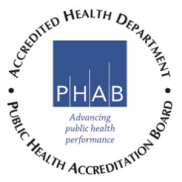Zika virus infection during pregnancy has been shown to cause certain birth defects, including microcephaly. In the spring of 2016, the Arkansas Department of Health (ADH) implemented the Arkansas Zika Pregnancy Registry, which seeks to collect surveillance data on Arkansas pregnant women infected with the Zika virus and their infants up to one year old. Data are used to track the spread of Zika in Arkansas and in the United States and to identify affected pregnant women and infants and to assist them in getting appropriate referrals and follow-up care. The Registry works with healthcare providers to plan clinical services for pregnant women at risk for Zika infection and their infants, including testing, evaluation, and clinical and data management. The Arkansas Zika Pregnancy Registry also strives to increase awareness of the Zika virus, prevention, and testing among providers.
The Registry works in collaboration with the ADH Preparedness Branch, Immunization & Outbreak Control Branch, and the Family Health Branch; the University of Arkansas Medical Sciences (UAMS) Antenatal & Neonatal Guidelines, Education and Learning System (ANGELS) Program; and the Arkansas Children’s Hospital (ACH) Complex Care Program and Arkansas Reproductive Health Monitoring System (ARHMS). Grant funding is through the Centers for Disease Control and Prevention (CDC). The Arkansas Zika Registry collaborates with the CDC U.S. Zika Pregnancy Registry to report Zika counts nationally. CDC uses the data to update recommendations for clinical care, to address questions about timing, risk, and the spectrum of outcomes linked with Zika during pregnancy, to plan for services for pregnancy women and families affected by Zika virus, and to improve prevention of Zika virus infection during pregnancy.
Eligibility for the Arkansas Zika Pregnancy Registry
Pregnant women and infants must meet the U.S. Zika Pregnancy Registry criteria to be included in the registry:
- Pregnant women with laboratory evidence of Zika virus infection (positive or equivocal test results, regardless of whether they have symptoms) and periconceptionally, prenatally or perinatally exposed infants born to these women.
- Infants with laboratory evidence of congenital Zika virus infection (positive or equivocal test results, regardless of whether they have symptoms) and their mothers.
Healthcare Providers: How to Participate in the Arkansas Zika Pregnancy Registry
CDC and the Arkansas Department of Health request that healthcare providers participate in the registry.
Obstetric healthcare providers can:
- Report information about pregnant women with laboratory evidence of Zika virus to the Arkansas Zika Pregnancy Registry.
- Collect pertinent clinical information about pregnant women and their infants for the Arkansas Zika Pregnancy Registry.
- Notify the Arkansas Zika Pregnancy Registry staff of adverse events (e.g., spontaneous abortion, termination of pregnancy).
Pediatric healthcare providers can:
- Identify and report suspected congenital Zika virus exposure to the Arkansas Zika Pregnancy Registry for possible testing.
- Collect pertinent clinical information about infants born to women with laboratory evidence of Zika virus infection or infants with congenital Zika virus infection for the Arkansas Zika Pregnancy Registry.
- Notify the Arkansas Zika Pregnancy Registry staff of adverse events (e.g., perinatal or infant deaths).
CDC Resources
“What to Know” factsheets and toolkits for obstetricians, pediatricians, and families can be found at the CDC U.S. Zika Pregnancy Registry website at https://www.cdc.gov/zika/reporting/registry.html.


